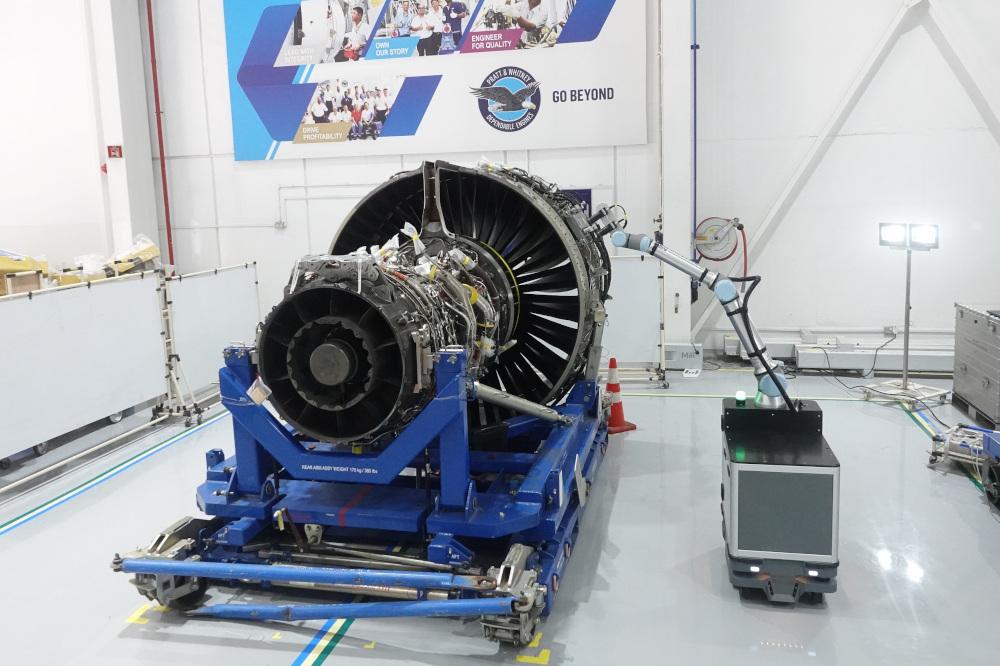
SINGAPORE--Pratt & Whitney has announced plans to establish a technology accelerator facility in Singapore that aims to develop new technologies for deployment across its MRO network in the island state.
The U.S.-headquartered engine manufacturer announced the plans today (Sept. 20) and says the facility at Seletar Aerospace Park will serve as a center of excellence for technology advancement.
Expected to be operational in the fourth quarter of 2022, Pratt plans to add 16 new full-time staff positions at the site. It will source those jobs from the domestic-based workforce pool.
Pratt will partner with the Singapore Economic Development Board for the venture, which will roll out technologies across its four Singapore-based MRO facilities over the next five years.
The engine OEM says the projects will focus on areas including automation, advanced inspection, connected factory and digital twin with the aim to better enhance connectivity and intelligence across its aftermarket operations.
In total, Pratt expects the projects to be worth at least S$31 million ($22 million). The company says it expects strong future demand in the Asia-Pacific region as it emerges from the COVID-19 pandemic. Specifically, Pratt cited high utilization rates on its next-generation PW1000G engine as a strong driver of this.
“The technology accelerator signals just how relevant and important a role technology has played, and continues to play, in the aerospace industry,” says Gilbert Sim, director of aftermarket global operations technology and CORE at Pratt & Whitney.
“The push for digitalization is underway across our facilities in Singapore, and the technology accelerator will increase the speed and scalability of these technology projects," adds Sim. "The mission of the accelerator nicely aligns with Singapore’s push to digitalize the economy.”
Kevin Kirkpatrick, vice president of aftermarket global operations at Pratt & Whitney, adds that, to date, the OEM has rolled out several new technologies in its Asia-Pacific operations, including the application of 3D printing for engine component details, robotics and an industrial simulation software pilot that targeted optimized floor space and productivity gains.
Pratt also confirmed it is in discussions with Singapore’s Agency for Science, Technology and Research (A*STAR) about partnering on technology innovation projects. A*STAR hosts Singapore’s aerospace program that drives innovation in emerging technologies and develops industry-relevant technologies for commercial aerospace.




